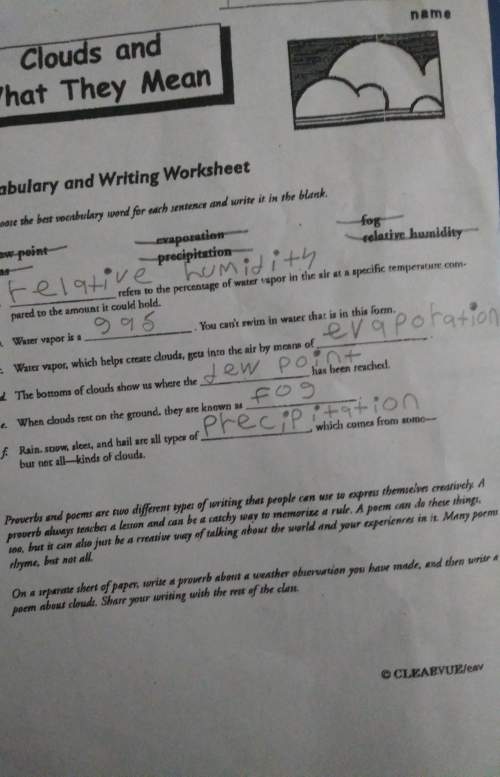
Physics, 18.12.2020 17:50 aprilayleen
Suppose you are in a moving car and the motor stops running. You step on the brakes and slow the car to half speed. If you release your foot from the brakes, will the car speed up a bit, or will it continue at half speed and slow due to friction?

Answers: 3


Other questions on the subject: Physics

Physics, 22.06.2019 08:50, babas97
The experiment was repeated many years later but the gases were mixed in a different type of container. a white solid was obtained which was xenon fluoride. predict whether you think 1) krypton and 2) radon will react with fluorine. explain reasons for your predictions
Answers: 3

Physics, 22.06.2019 19:00, sanchez626
Friction removes energy from objects in motion. which statement best describes how this works? a) friction transforms ke into thermal energy b) friction transfers thermal energy to ke c) friction transforms te into pe d) friction transforms pe into ke e) friction transfers ke into pe
Answers: 1

Physics, 22.06.2019 19:50, aliami0306oyaj0n
State the below theories and give the name of the writer of the theory 1. wave theory 2. quantum theory 3. corpuscular theory 4. electromagnetic theory
Answers: 1

Physics, 22.06.2019 21:00, sportsseolive4471
Acentrifuge in a medical laboratory rotates at an angular speed of 3,700 rev/min. when switched off, it rotates through 54.0 revolutions before coming to rest. find the constant angular acceleration (in rad/s2) of the centrifuge. your response is within 10% of the correct value. this may be due to roundoff error, or you could have a mistake in your calculation. carry out all intermediate results to at least four-digit accuracy to minimize roundoff error. rad/s2
Answers: 1
You know the right answer?
Suppose you are in a moving car and the motor stops running. You step on the brakes and slow the car...
Questions in other subjects:

Chemistry, 17.07.2021 14:00



Biology, 17.07.2021 14:00


Health, 17.07.2021 14:00




Mathematics, 17.07.2021 14:00




